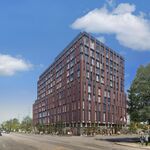An informative article from Royson James on the foundation of the issue:
City economics: budget surplus = deficit
Mon Sep 26 2011
The budget battle taking place on the floor of city council this week reflects two competing truths: One, Toronto is spending more money than it takes in through taxes and fees. Two, there is not enough savings from “gravy†or waste to cover the gap.
Is the city broke? How did we get there? Is there massive waste? Will this “core service review†solve the fiscal problems and set Toronto on a path clear of the annual budget battle? And what are the solutions most Torontonians can live with?
Today, the context; later, the solutions.
The first head-scratcher for residents is how David Miller can leave office with a $300 million “surplus†and Mayor Rob Ford arrive the next day to announce a $774 million “shortfall?â€
Ah, the wonders of city budgeting. When staff present the spending and revenue targets for a calendar year, it is an educated guess. By law, the city cannot run a deficit. If they are short, they would have to impose a supplementary tax on property owners. That’s political suicide, so staff must be conservative in their estimates to ensure revenues/taxes cover costs.
As a result, by year-end, there’s always a “surplus†— ranging from $5.8 million in 2004 to $95.1 million in 2007 and to $367.5 million last year. These funds are automatically rolled over to the next year to reduce the total in taxes needed for the coming year.
But they create a false impression and present a problem for the untrained observer. If the surplus was guaranteed and stable, then the next year’s budget forecast could depend on it as a revenue source. It’s not, and it can’t be, so staff treat the “surplus†as a one-time gift.
It’s as if you got a $200 birthday gift and used it to help pay your $1,000 rent. Now, if your income was only $800, you’d start the next month with a $200 shortfall.
The huge Miller surplus from 2010, in essence, is now creating a larger-than-normal “shortfall†for 2012. It has fed the budget, boosting it to the $774 million figure the mayor throws around.
First, the amount was rolled over into the 2011 budget. Little wonder the current year’s budget was approved with such little drama and Mayor Ford even froze taxes and rejected the TTC’s vote to increase fares by 10 cents.
(Some consider that a foolish move, and short-sighted. In effect, Ford denied the city about $100 million in revenues in 2011 — $70 million that would have come in from a 3 per cent tax hike and $30 million from the fare hike. Compounded, that sum would grow to $200 million for the 2012 budget.)
That aside, the current debate is over the 2012 budget — and beyond. Faced with shortfalls ever since amalgamation, when the province downloaded services and costs, city council has used several sources to balance its books. The problem recurs each year because the funding sources — like the birthday gift above — are one-time money.
Every year, council uses reserve funds, loans, grants from the province, investment income and other money that may or may not show up the following year. Staff have been warning that the city needs permanent funding sources or spending reductions to fix what they call the “structural deficit.â€
Ford campaigned on a pledge he could find nearly $2 billion in “gravy,†and cut it without affecting services. So he embraced staff’s “core service review,†the current exercise that has created a storm of controversy. As it turns out, only diehard Ford Nation, anti-government types would consider most of the services identified as “gravy.â€
Council will continue debating the options Tuesday. Next, the choices they could make, if only they weren’t blinded by ideology.
http://www.thestar.com/news/article/1060039--city-economics-budget-surplus-deficit



